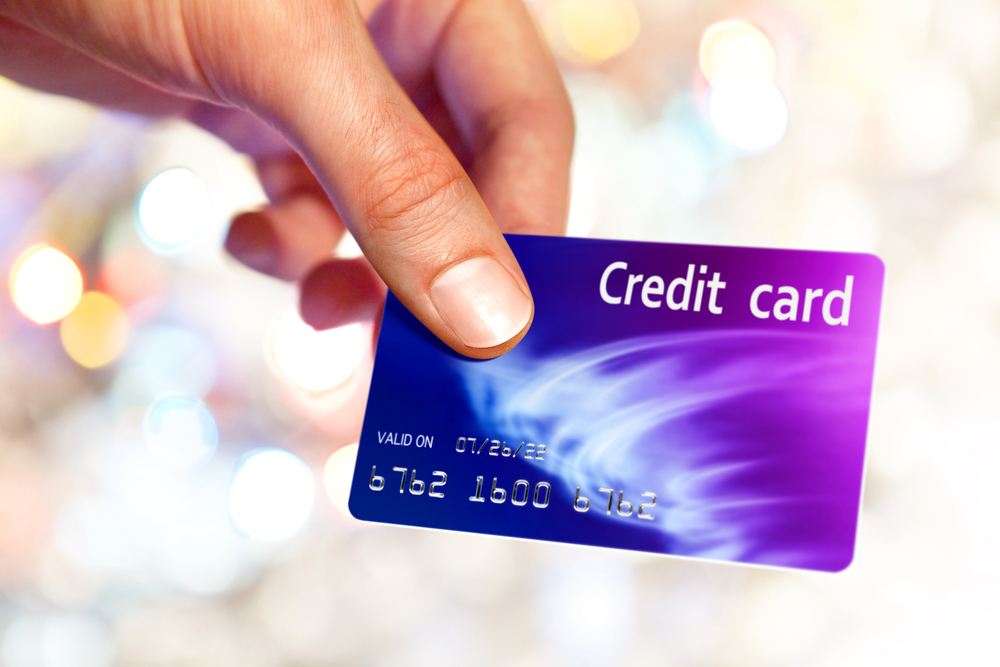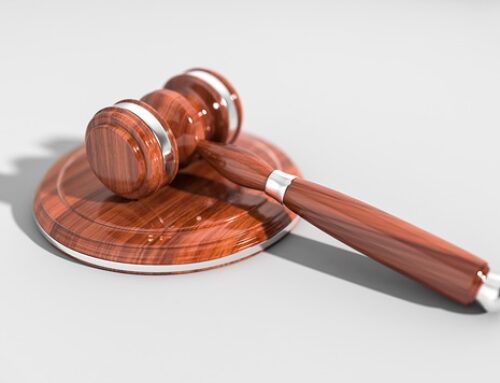Understanding the Charge-Off Meaning: What it is and Why it Matters
If you’re like most people, you’ve probably heard the term “charge-off” before, but you might not be entirely sure what it means. Simply put, a charge-off is when a lender declares that a debt is unlikely to be repaid and writes it off as a loss. This can happen with any type of debt, from credit cards to loans, and it can have serious consequences for your credit score and financial future.
Understanding the charge-off meaning is critical if you want to make informed decisions about your finances and avoid the pitfalls of debt. In this article, we’ll break down what a charge-off is, how it happens, and what you can do to mitigate its impact on your credit and overall financial health. So whether you’re struggling with debt or just want to be prepared for any potential future challenges, read on to learn everything you need to know about charge-offs.
Defining Charge-Off
A charge-off is a financial term used by lenders to describe a debt that is unlikely to be repaid. Essentially, when a borrower fails to make payments on a debt for a certain period of time, the lender will declare the debt as a loss and remove it from their books. This means that the lender no longer expects to be repaid, and the borrower’s debt is effectively written off.
It’s important to note that a charge-off doesn’t mean that the borrower is off the hook for the debt. The debt still exists, and the lender can still attempt to collect it through other means, such as collections or legal action. However, a charge-off is a significant event that can have serious consequences for both the borrower’s credit score and their financial future.
In most cases, a charge-off will occur after a borrower has gone several months without making a payment on their debt. The exact timeline can vary depending on the type of debt and the lender’s policies, but generally, a charge-off will occur after 120 to 180 days of delinquency. Once the debt is charged off, it will typically be sold to a collections agency, which will then attempt to collect the debt from the borrower.
How Charge-Offs Affect Your Credit Score
One of the biggest concerns with charge-offs is their impact on your credit score. When a debt is charged off, it will be reported to the credit bureaus as a negative item on your credit report. This can have a significant impact on your credit score, which is a numerical representation of your creditworthiness.
The exact impact of a charge-off on your credit score will depend on a variety of factors, including the amount of the debt, how recently it was charged off, and your overall credit history. However, in general, a charge-off can cause your credit score to drop by 100 points or more. This can make it difficult to obtain new credit, such as loans or credit cards, and can also lead to higher interest rates and fees on the credit that you do have.
It’s important to note that a charge-off will remain on your credit report for seven years from the date that it was charged off. This means that even if you pay off the debt in full, the charge-off will still be visible to lenders and can still impact your credit score.
Understanding Charge-Offs on Your Credit Report
As mentioned earlier, a charge-off will be reported to the credit bureaus and will appear on your credit report as a negative item. On your credit report, you’ll be able to see the date that the debt was charged off, the amount of the debt, and the name of the creditor.
It’s important to review your credit report regularly to ensure that all of the information is accurate. If you notice any errors or inaccuracies on your credit report, you should dispute them with the credit bureaus to have them corrected. Errors on your credit report can have a significant impact on your credit score, so it’s important to address them as soon as possible.
Charge-Off vs. Collections: What’s the Difference?
While charge-offs and collections are related, they are not the same thing. As we mentioned earlier, a charge-off is when a lender writes off a debt as a loss. Collections, on the other hand, is the process of attempting to collect a debt that is past due.
When a debt is charged off, it will typically be sold to a collections agency, which will then attempt to collect the debt from the borrower. The collections agency may use a variety of methods to collect the debt, including phone calls, letters, and legal action.
It’s important to note that collections can also have a negative impact on your credit score. When a debt is sent to collections, it will be reported to the credit bureaus and will appear on your credit report as a negative item. This can cause your credit score to drop, just like a charge-off.
What Happens After a Charge-Off?
After a debt is charged off, there are several things that can happen. The debt may be sold to a collections agency, which will then attempt to collect the debt from the borrower. The collections agency may use a variety of methods to collect the debt, including phone calls, letters, and legal action.
If the debt is sold to a collections agency, it’s important to know your rights as a consumer. Collections agencies are required to follow certain rules and regulations when attempting to collect a debt. For example, they are not allowed to harass you or threaten you with legal action unless they actually intend to take legal action.
It’s also important to note that just because a debt has been charged off doesn’t mean that you can’t still try to pay it off. In fact, paying off a charged-off debt can actually be beneficial to your credit score, as it will show that you are taking steps to address your debt.
How to Deal with Charge-Offs on Your Credit Report
If you have a charge-off on your credit report, there are several things that you can do to mitigate its impact on your credit score.
First, you should review your credit report to ensure that all of the information is accurate. If you notice any errors or inaccuracies on your credit report, you should dispute them with the credit bureaus to have them corrected.
Next, you should try to pay off the debt if possible. While paying off a charged-off debt won’t remove the charge-off from your credit report, it will show that you are taking steps to address your debt.
Finally, you can work with a credit counselor or financial advisor to develop a plan to address your debt and improve your credit score. These professionals can provide guidance and support as you work to get your finances back on track.
Preventing Charge-Offs in the Future
Of course, the best way to deal with charge-offs is to prevent them from happening in the first place. There are several things that you can do to reduce your risk of having a debt charged off.
First, you should always make your payments on time and in full. Late or missed payments can quickly lead to delinquency and ultimately, a charge-off.
Second, you should avoid taking on more debt than you can handle. This means only borrowing what you can realistically afford to repay, and avoiding high-interest loans or credit cards with high fees.
Finally, you should work to build an emergency fund that can help you cover unexpected expenses without relying on credit. Having a cushion of savings can prevent you from falling behind on your debts and ultimately, having a charge-off.
Charge-Offs and Debt Settlement
If you’re struggling with debt and are at risk of having a charge-off, you may be considering debt settlement as an option. Debt settlement is a process where you negotiate with your creditors to settle your debts for less than what you owe.
While debt settlement can be a viable option for some borrowers, it’s important to understand its risks and drawbacks. Debt settlement can have a negative impact on your credit score, as it typically involves not making payments on your debts for several months. It can also be expensive, as debt settlement companies often charge high fees.
If you’re considering debt settlement, it’s important to do your research and understand all of the potential risks and drawbacks. You may also want to consider working with a credit counselor or financial advisor to develop a plan to address your debt that doesn’t involve debt settlement.
The Impact of Charge-Offs on Your Finances
Charge-offs can have a significant impact on your finances, both in the short-term and the long-term. In the short-term, a charge-off can make it difficult to obtain new credit, such as loans or credit cards. It can also lead to higher interest rates and fees on the credit that you do have.
In the long-term, a charge-off can have even more serious consequences. As we mentioned earlier, a charge-off will remain on your credit report for seven years from the date that it was charged off. This means that even if you pay off the debt in full, the charge-off will still be visible to lenders and can still impact your credit score.
Ultimately, the best way to deal with charge-offs is to prevent them from happening in the first place. By making your payments on time, avoiding taking on too much debt, and building an emergency fund, you can reduce your risk of having a debt charged off. If you do have a charge-off, there are steps that you can take to mitigate its impact on your credit score and financial health.
Charge-offs are a serious financial event that can have significant consequences for your credit score and overall financial health. By understanding what a charge-off is, how it happens, and what you can do to prevent and mitigate its impact, you can make informed decisions about your finances and avoid the pitfalls of debt. If you’re struggling with debt or just want to be prepared for any potential future challenges, take the time to educate yourself about charge-offs and how they can impact your finances. With the right knowledge and tools, you can take control of your finances and build a brighter financial future.
Ready to take control of your financial future?
Call Masters Credit today at 1-844-620-8796 and let us propel your credit score to new heights!
1-844-620-8796
Don’t miss out on our free online credit evaluation – discover the key to unlocking better opportunities and achieving your financial goals. Take the first step towards a brighter tomorrow by taking our evaluation now!
Take our free online credit evaluation today!






Leave A Comment